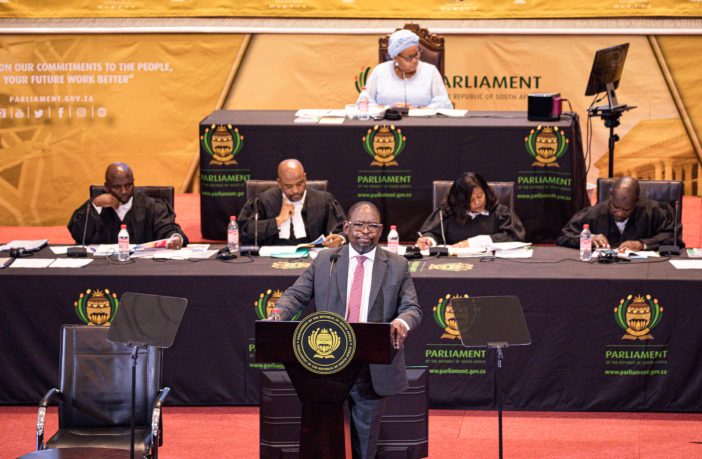- The South African National Treasury has proposed to provide the country’s embattled power utility, Eskom, with R254 billion in debt relief over the next three years.
This was on Wednesday confirmed by Finance Minister Enoch Godongwana while delivering the 2023 Budget Speech at the Cape Town City Hall. Of the R254 billion debt relief, R168 billion will be in capital while R86 billion will be in interest, said the the National Treasury in its 2023 Budget Review document.
“Because of the structure of the debt relief, Eskom will not need further borrowing during the relief period. Government will finance the arrangement through the R66 billion baseline provision announced in the 2019 Budget, and R118 billion in additional borrowings over the next three years,” said the Minister.
In the report, the Treasury said Eskom’s operational failures were intertwined with its “untenable” financial position. Since 2008/09, government has provided the utility with R263.4 billion in bailouts. These allocations, it said, have failed to stem the collapse of Eskom’s balance sheet and operations.
With a current R423 billion debt on its book, the document says the figure imposes an “enormous drain on the economy”.
“Government guarantees R350 billion of this debt, which is at risk of default – a contingent liability that raises South Africa’s risk premium and borrowing costs,” read the document.
The goal of the debt relief is to strengthen the utility’s balance sheet, enabling it to restructure and undertake the investment and maintenance needed to support security of electricity supply.
The key features of this arrangement include government providing Eskom with advances of R78 billion in 2023/24, R66 billion in 2024/25 and R40 billion in 2025/26.These advances will cover capital and interest payments as they fall due and may only be used for that purpose.
In 2025/26, Godongwana said government will directly take over up to R70 billion of Eskom’s loan portfolio. This arrangement has been the subject of extensive consultation with Eskom and its stakeholders.
“Its success rests on the implementation of key reforms that address the inadequacies of the transmission network and performance of existing power stations,” reads the Budget Review.
The implementation of these reforms will form part of obligatory conditions.
These include:
• Eskom, the National Treasury and the Department of Public Enterprises have agreed to design a mechanism for building new transmission infrastructure that will allow for extensive private-sector participation in the development of the transmission network.
• The National Treasury has appointed an international consortium with extensive experience in the operations of coal-fired power stations to review all plants in Eskom’s coal fleet and advice on operational improvements. The review is scheduled to conclude by mid-2023. Eskom is required to implement the operational recommendations emanating from this independent assessment. This will include a determination of which plants can be resuscitated to original equipment manufacturers’ standards, following which Eskom must concession all these power stations with clear targets for the electricity availability factor and operations.
Author: Bryan Groenendaal
Source: SAnews.gov.za















